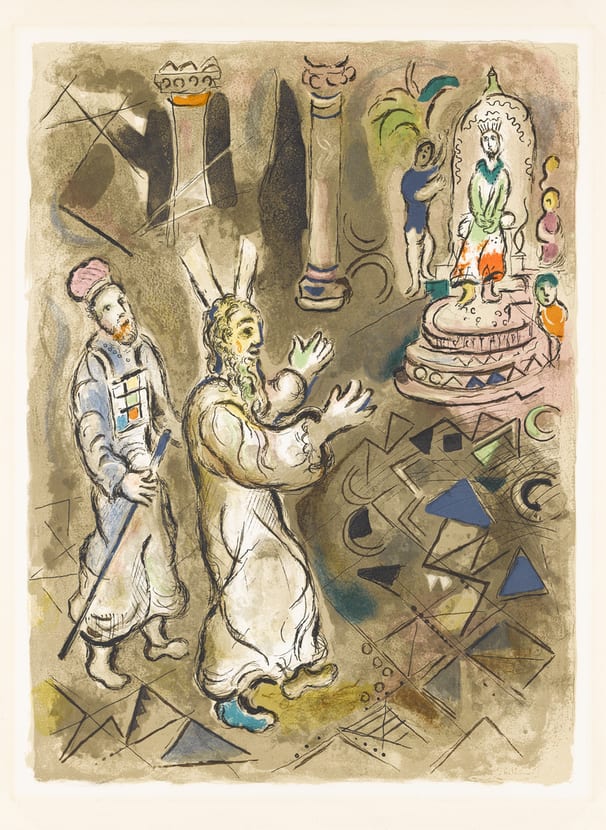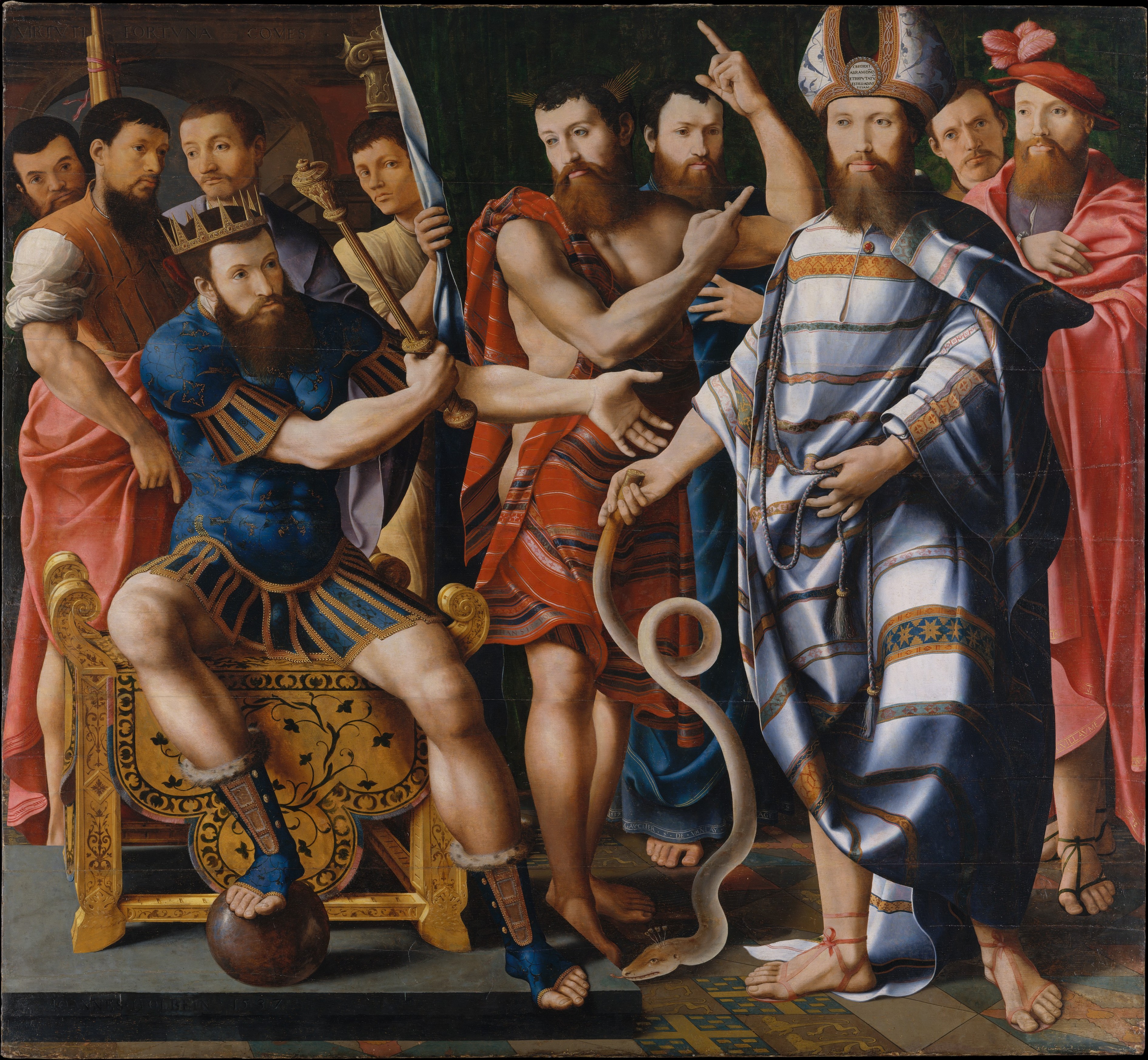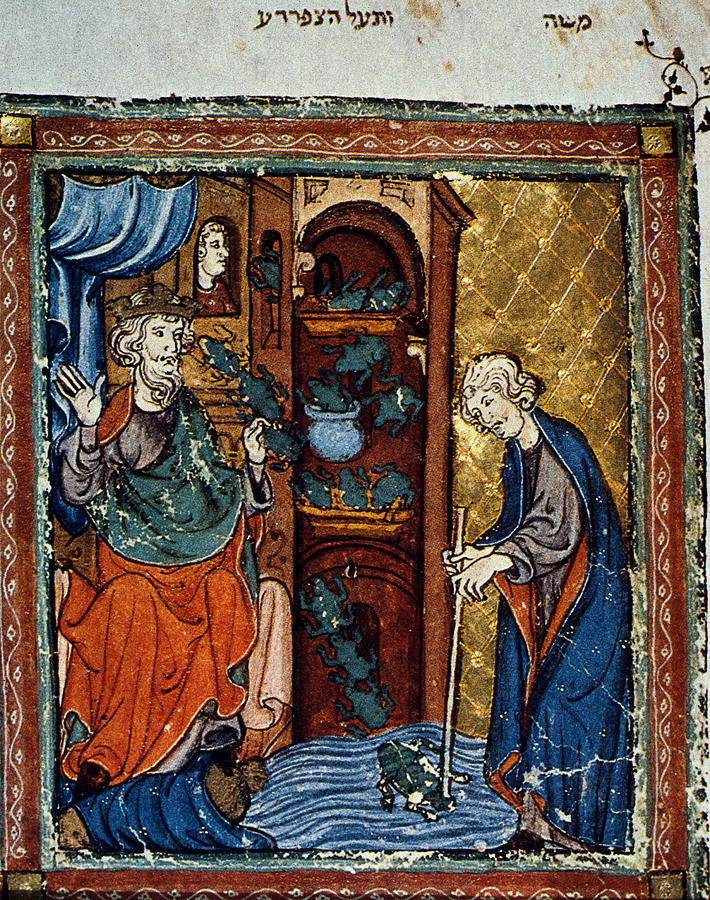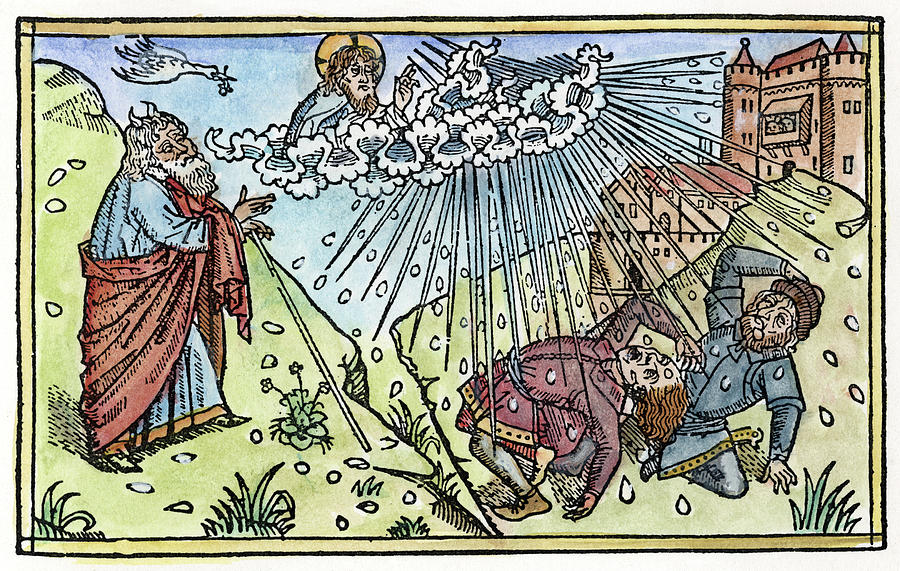In this blog, we'll focus on the working being done at Sligo Presbyterian Church, Sligo, Pennsylvania. We'll also look at what's happening in Sligo, Rimersburg, Clarion, and all the other communities served by our congregation.
Friday, June 30, 2023
Today in the Mission Yearbook - PC(USA) congregation and partners work to build a home for all God’s creatures
The Bible Passage for Our Sunday Service (Genesis 21:8-21)
We're going to spend the summer of 2023 with the Patriarchs. During eleven worship services, beginning on Father's Day, we'll use passages from the book of Genesis to look at Abraham, Isaac, Jacob, and Joseph, focusing on how the Lord was consistently and actively involved in their lives. And by the end of the summer, we should have a better understanding of the one whom they followed and on how that same God can lead us. During this series, we'll look at the stories and passages below:
- June 18 - The Lord Chooses Abram (Genesis 12:1-9)
- June 25 - The Lord Promises Abraham a Son (Genesis 18:1-15)
- July 2 - Abraham Sends Hagar and Ishmael Away (Genesis 21:8-21)
- July 9 - The Lord Tests Abraham (Genesis 22:1-14)
- July 16 - Abrahams Finds Isaac a Wife (Genesis 24:34-38, 42-49)
- July 23 - Jacob and Esau (Genesis 25:19-34)
- July 30 - Jacob's Dream at Bethel (Genesis 28:10-19a)
- August 6 - Jacob with Leah and Rachel (Genesis 29:15-28)
- August 13 - Jacob Becomes Israel (Genesis 32:22-31)
- August 20 - Joseph and His Brothers (Genesis 37:1-4, 12-28)
- August 27 - Joseph Tells His Brothers Who He Is (Genesis 45:1-15)
On the Road to Jerusalem: A Study of Luke - Session 8 - The Yeast of Hypocrisy (Luke 12:1–13:21)
Join us as we use the Gospel of Luke to discuss the journey made by Jesus Christ to the city of Jerusalem, from his birth to his ascension. During our time together, we’ll look at the following:
- Session 1 - An Introduction (Luke 1:1-4)
- Session 2 - Before the Beginning (Luke 1:5–2:52)
- Session 3 - Preparing for the Big Day (Luke 3:1–4:13)
- Session 4 - Off and Running (Luke 4:14–6:16)
- Session 5 - Preparing His Followers (Luke 6:17–8:21)
- Session 6 - You Are the Christ of God (Luke 8:22–9:50)
- Session 7 - Beginning the Journey (Luke 9:51–12:1)
- Session 8 - The Yeast of Hypocrisy (Luke 12:1–13:21)
- Session 9 - Being a Disciple (Luke 12:2–14:35)
- Session 10 - Joy and Wealth (Luke 15:1–16:31)
- Session 11 - What’s Coming (Luke 17:1–18:30)
- Session 12 - Approaching the City (Luke 18:31–19:28)
- Session 13 - Ministry in Jerusalem (Luke 19:29–21:38)
- Session 14 - The Passion of the Christ [Part 1] (Luke 22:1-71)
- Session 15 - The Passion of the Christ [Part 2] (Luke 23:1-56)
- Session 16 - Resurrection (Luke 24:1-53)
During our eighth session in the series, we used Luke 12:1–13:21 to discuss Jesus's teachings on hypocrisy. The discussion and passage are below:
Meanwhile, when the crowd gathered by the thousands, so that they trampled on one another, he began to speak first to his disciples, “Beware of the yeast of the Pharisees, that is, their hypocrisy. Nothing is covered up that will not be uncovered, and nothing secret that will not become known. Therefore whatever you have said in the dark will be heard in the light, and what you have whispered behind closed doors will be proclaimed from the housetops. “I tell you, my friends, do not fear those who kill the body, and after that can do nothing more. But I will warn you whom to fear: fear him who, after he has killed, has authority to cast into hell. Yes, I tell you, fear him! Are not five sparrows sold for two pennies? Yet not one of them is forgotten in God’s sight. But even the hairs of your head are all counted. Do not be afraid; you are of more value than many sparrows. “And I tell you, everyone who acknowledges me before others, the Son of Man also will acknowledge before the angels of God; but whoever denies me before others will be denied before the angels of God. And everyone who speaks a word against the Son of Man will be forgiven; but whoever blasphemes against the Holy Spirit will not be forgiven. When they bring you before the synagogues, the rulers, and the authorities, do not worry about how you are to defend yourselves or what you are to say; for the Holy Spirit will teach you at that very hour what you ought to say.”
Someone in the crowd said to him, “Teacher, tell my brother to divide the family inheritance with me.” But he said to him, “Friend, who set me to be a judge or arbitrator over you?” And he said to them, “Take care! Be on your guard against all kinds of greed; for one’s life does not consist in the abundance of possessions.” Then he told them a parable: “The land of a rich man produced abundantly. And he thought to himself, ‘What should I do, for I have no place to store my crops?’ Then he said, ‘I will do this: I will pull down my barns and build larger ones, and there I will store all my grain and my goods. And I will say to my soul, ‘Soul, you have ample goods laid up for many years; relax, eat, drink, be merry.’ But God said to him, ‘You fool! This very night your life is being demanded of you. And the things you have prepared, whose will they be?’ So it is with those who store up treasures for themselves but are not rich toward God.”
He said to his disciples, “Therefore I tell you, do not worry about your life, what you will eat, or about your body, what you will wear. For life is more than food, and the body more than clothing. Consider the ravens: they neither sow nor reap, they have neither storehouse nor barn, and yet God feeds them. Of how much more value are you than the birds! And can any of you by worrying add a single hour to your span of life? If then you are not able to do so small a thing as that, why do you worry about the rest? Consider the lilies, how they grow: they neither toil nor spin; yet I tell you, even Solomon in all his glory was not clothed like one of these. But if God so clothes the grass of the field, which is alive today and tomorrow is thrown into the oven, how much more will he clothe you—you of little faith! And do not keep striving for what you are to eat and what you are to drink, and do not keep worrying. For it is the nations of the world that strive after all these things, and your Father knows that you need them. Instead, strive for his kingdom, and these things will be given to you as well. “Do not be afraid, little flock, for it is your Father’s good pleasure to give you the kingdom. Sell your possessions, and give alms. Make purses for yourselves that do not wear out, an unfailing treasure in heaven, where no thief comes near and no moth destroys. For where your treasure is, there your heart will be also. “Be dressed for action and have your lamps lit; be like those who are waiting for their master to return from the wedding banquet, so that they may open the door for him as soon as he comes and knocks. Blessed are those slaves whom the master finds alert when he comes; truly I tell you, he will fasten his belt and have them sit down to eat, and he will come and serve them. If he comes during the middle of the night, or near dawn, and finds them so, blessed are those slaves. “But know this: if the owner of the house had known at what hour the thief was coming, he would not have let his house be broken into. You also must be ready, for the Son of Man is coming at an unexpected hour.”
Peter said, “Lord, are you telling this parable for us or for everyone?” And the Lord said, “Who then is the faithful and prudent manager whom his master will put in charge of his slaves, to give them their allowance of food at the proper time? Blessed is that slave whom his master will find at work when he arrives. Truly I tell you, he will put that one in charge of all his possessions. But if that slave says to himself, ‘My master is delayed in coming,’ and if he begins to beat the other slaves, men and women, and to eat and drink and get drunk, the master of that slave will come on a day when he does not expect him and at an hour that he does not know, and will cut him in pieces, and put him with the unfaithful. That slave who knew what his master wanted, but did not prepare himself or do what was wanted, will receive a severe beating. But the one who did not know and did what deserved a beating will receive a light beating. From everyone to whom much has been given, much will be required; and from the one to whom much has been entrusted, even more will be demanded. “I came to bring fire to the earth, and how I wish it were already kindled! I have a baptism with which to be baptized, and what stress I am under until it is completed! Do you think that I have come to bring peace to the earth? No, I tell you, but rather division! From now on five in one household will be divided, three against two and two against three; they will be divided: father against son and son against father, mother against daughter and daughter against mother, mother-in-law against her daughter-in-law and daughter-in-law against mother-in-law.”
He also said to the crowds, “When you see a cloud rising in the west, you immediately say, ‘It is going to rain’; and so it happens. And when you see the south wind blowing, you say, ‘There will be scorching heat’; and it happens. You hypocrites! You know how to interpret the appearance of earth and sky, but why do you not know how to interpret the present time? “And why do you not judge for yourselves what is right? Thus, when you go with your accuser before a magistrate, on the way make an effort to settle the case, or you may be dragged before the judge, and the judge hand you over to the officer, and the officer throw you in prison. I tell you, you will never get out until you have paid the very last penny.”
At that very time there were some present who told him about the Galileans whose blood Pilate had mingled with their sacrifices. He asked them, “Do you think that because these Galileans suffered in this way they were worse sinners than all other Galileans? No, I tell you; but unless you repent, you will all perish as they did. Or those eighteen who were killed when the tower of Siloam fell on them—do you think that they were worse offenders than all the others living in Jerusalem? No, I tell you; but unless you repent, you will all perish just as they did.”
Then he told this parable: “A man had a fig tree planted in his vineyard; and he came looking for fruit on it and found none. So he said to the gardener, ‘See here! For three years I have come looking for fruit on this fig tree, and still I find none. Cut it down! Why should it be wasting the soil?’ He replied, ‘Sir, let it alone for one more year, until I dig around it and put manure on it. If it bears fruit next year, well and good; but if not, you can cut it down.’”
Now he was teaching in one of the synagogues on the sabbath. And just then there appeared a woman with a spirit that had crippled her for eighteen years. She was bent over and was quite unable to stand up straight. When Jesus saw her, he called her over and said, “Woman, you are set free from your ailment.” When he laid his hands on her, immediately she stood up straight and began praising God. But the leader of the synagogue, indignant because Jesus had cured on the sabbath, kept saying to the crowd, “There are six days on which work ought to be done; come on those days and be cured, and not on the sabbath day.” But the Lord answered him and said, “You hypocrites! Does not each of you on the sabbath untie his ox or his donkey from the manger, and lead it away to give it water? And ought not this woman, a daughter of Abraham whom Satan bound for eighteen long years, be set free from this bondage on the sabbath day?” When he said this, all his opponents were put to shame; and the entire crowd was rejoicing at all the wonderful things that he was doing.
He said therefore, “What is the kingdom of God like? And to what should I compare it? It is like a mustard seed that someone took and sowed in the garden; it grew and became a tree, and the birds of the air made nests in its branches.” And again he said, “To what should I compare the kingdom of God? It is like yeast that a woman took and mixed in with three measures of flour until all of it was leavened.”
Prayer Requests to be shared during Sunday’s service
- Alaura Hagan
- Armed Forces
- Arnold Bowser
- Betty Terwint
- Bob Varner
- Brooke Schmader
- Bruce Bowman
- Bus Clark
- Canadian Wildfires
- Carol Carr
- Cass' Neice
- Charles Truitt
- Chris Sibert
- Church Leaders
- College Students
- Corbin
- David Glatt
- Debbie Myers
- Dickey Chrissman
- Doctors & Nurses & all essential workers
- Duane Quinn
- Ella Henry
- Francis Maines
- Government Leaders
- Jeff Rainey
- Jim Mahle
- Jim Mason
- JR Sherry
- Kathleen Viglianco
- Lana Todd
- Larry Jamison
- Lori Myers
- Marcy Hall
- Maxine Hartle
- Maxine Simpson
- Mike Hiles
- Mike Miller
- Noah
- Our Youth
- Pam Bottomley
- Patty Selle
- Phillip Durnell
- Police Officers
- Randy Frampton
- Rick Shadiow
- Riley
- Ron & Shelly Haines
- Ron Lerch
- Rowan Ramirez
- Rwanda Partner
- Sandy Boilegh
- Sandy Patterson
- Sara Beth Lawrence
- Sean Bayless
- Shirley Barnes
- Stephen & Alice Lucas
- Sue Black
- The Susan Mortimer Family
- Tadd French
- Tamlynn
- The Brooke Schmader Family
- Velma Stewart
- Virginia Heidler
- Wes Summerville
- World Vision
The Bulletin for the SPC Worship Service - Sunday, July 2, 2023
We're going to spend the summer of 2023 with the Patriarchs. During eleven worship services, beginning on Father's Day, we'll use passages from the book of Genesis to look at Abraham, Isaac, Jacob, and Joseph, focusing on how the Lord was consistently and actively involved in their lives. And by the end of the summer, we should have a better understanding of the one whom they followed and on how that same God can lead us. During this series, we'll look at the stories and passages below:
- June 18 - The Lord Chooses Abram (Genesis 12:1-9)
- June 25 - The Lord Promises Abraham a Son (Genesis 18:1-15)
- July 2 - Abraham Sends Hagar and Ishmael Away (Genesis 21:8-21)
- July 9 - The Lord Tests Abraham (Genesis 22:1-14)
- July 16 - Abrahams Finds Isaac a Wife (Genesis 24:34-38, 42-49)
- July 23 - Jacob and Esau (Genesis 25:19-34)
- July 30 - Jacob's Dream at Bethel (Genesis 28:10-19a)
- August 6 - Jacob with Leah and Rachel (Genesis 29:15-28)
- August 13 - Jacob Becomes Israel (Genesis 32:22-31)
- August 20 - Joseph and His Brothers (Genesis 37:1-4, 12-28)
- August 27 - Joseph Tells His Brothers Who He Is (Genesis 45:1-15)
Prayers for Our Community, Our Nation and Our World
Bible Readings for June 30, 2023
Today in the Mission Yearbook - Secret Sauce conference offers a recipe for partnerships with immigrant communities and a ‘cookbook’ to download
Wednesday, June 28, 2023
From Captivity to Freedom: A Study of the Exodus - Let My People Go (Exodus 5:1 – 11:10)
During the SPC Wednesday morning Bible Study, we're studying the story of the Hebrew Exodus as recorded in the books of Exodus and Numbers. During the ten sessions in this series, we’ll look at the following topics:
- Session 1 – The Man of the Hour (Exodus 1:1 – 4:31)
- Session 2 – Let My People Go (Exodus 5:1 – 11:10)
- Session 3 – Exit (Exodus 12:1 – 15:21)
- Session 4 – Now What (Exodus 15:21 – 18:27)
- Session 5 – OOPS (19:1 – 20:26; 24:1-18; 32:1 – 33 8)
- Session 6 – Moses Is the Man (Exodus 33:9 – 34:35; 40:1-38; Numbers 10:11-36)
- Session 7 – A Complaining Bunch (Numbers 11:1 – 14:45)
- Session 8 – Leadership and Control (Numbers 16:1 – 20:13)
- Session 9 – About to Enter the Land (Numbers 20:14 – 24:25)
- Session 10 – On Your Mark, Get Set (Numbers 25:1 – 26:4; 31:1 – 32:42)
The Sligo Presbyterian Church Celebration Service - Sunday, June 25, 2023
We're going to spend the summer of 2023 with the Patriarchs. During eleven worship services, beginning on Father's Day, we'll use passages from the book of Genesis to look at Abraham, Isaac, Jacob, and Joseph, focusing on how the Lord was consistently and actively involved in their lives. And by the end of the summer, we should have a better understanding of the one whom they followed and on how that same God can lead us. During this series, we'll look at the stories and passages below:
- June 18 - The Lord Chooses Abram (Genesis 12:1-9)
- June 25 - The Lord Promises Abraham a Son (Genesis 18:1-15)
- July 2 - Abraham Sends Hagar and Ishmael Away (Genesis 21:8-21)
- July 9 - The Lord Tests Abraham (Genesis 22:1-14)
- July 16 - Abrahams Finds Isaac a Wife (Genesis 24:34-38, 42-49)
- July 23 - Jacob and Esau (Genesis 25:19-34)
- July 30 - Jacob's Dream at Bethel (Genesis 28:10-19a)
- August 6 - Jacob with Leah and Rachel (Genesis 29:15-28)
- August 13 - Jacob Becomes Israel (Genesis 32:22-31)
- August 20 - Joseph and His Brothers (Genesis 37:1-4, 12-28)
- August 27 - Joseph Tells His Brothers Who He Is (Genesis 45:1-15)
Prayer Requests to be shared during Sunday’s service
On Sunday, February 15, Sligo Presbyterian Church will lift to God the needs below: Adam & Shaina Hile Antonio Jimenez Bade Mohn Barbara...

-
Velma Grace Stewart, 92, of Shippenville Health Care Center, formerly of Perry Township, Parker, PA, passed away on Sunday, June 15, at the ...
-
Tracy L. Simpson, 55, of East Brady died Wednesday, June 4, 2025 after a brief illness. Born August 7, 1969 in Louisville, KY, she was the d...
-
Below is the obituary for Bus as it appears on the Varner Funeral Home website. William “Bus, Buster” Clark, 78, of Sligo, passed away on W...











































